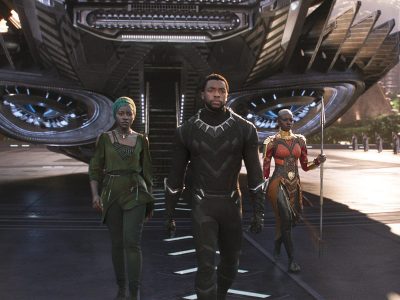


A book like Afrofuturism, one which collected these disparate ideas and inspirations, ranging from the music theories of Sun Ra to the sci–fi work of W.E.B. I, too, was an Afrofuturist most of my life, not knowing I was an Afrofuturist, and there were, in my journalistic analysis, a legion of many who fell into the same coveted box.

I wrote Afrofuturism: The World of Black Sci Fi & Fantasy Culture (Lawrence Hill Books) with them in mind. Not knowing the term Afrofuturism or its application was a deficit.

I share this story often, because upon graduation, many of those students weren’t quite sure how their comic book–inspired philosophies on life fit in the world they were to make a living in. This seamless relationship between art, history, music, mysticism, and science appeared to be the keys to unlocking the destinies of lives in need of a refresh. Organic food and holistic living was an answer, too. Depictions of Black people in the future were a major prong in the platform of answers. The energy of what we’d later call Afrofuturism was a dominant line of reasoning for students on the campus, nearby campuses, and the city at large who eagerly wanted to transform their communities, build a new future that valued humanity, and shed light on an overlooked past filled with incredible innovations by people of African descent. He was one of hundreds at the school actively engaged in these ideas. In our first conversation, his enigmatic persona somehow managed to relay the connections between funk music, ancient African technologies, the minimal presence of Black people in sci–fi, and golden era hip hop’s aspirations. It was the defining philosophy of his emerging adult life. As a student at Clark Atlanta University, I was befriended by a sci–fi lover from Philly who championed what I’d later know as Afrofuturism. When people ask me to share my introduction to Afrofuturism, I usually look to my freshman year of college.


 0 kommentar(er)
0 kommentar(er)
